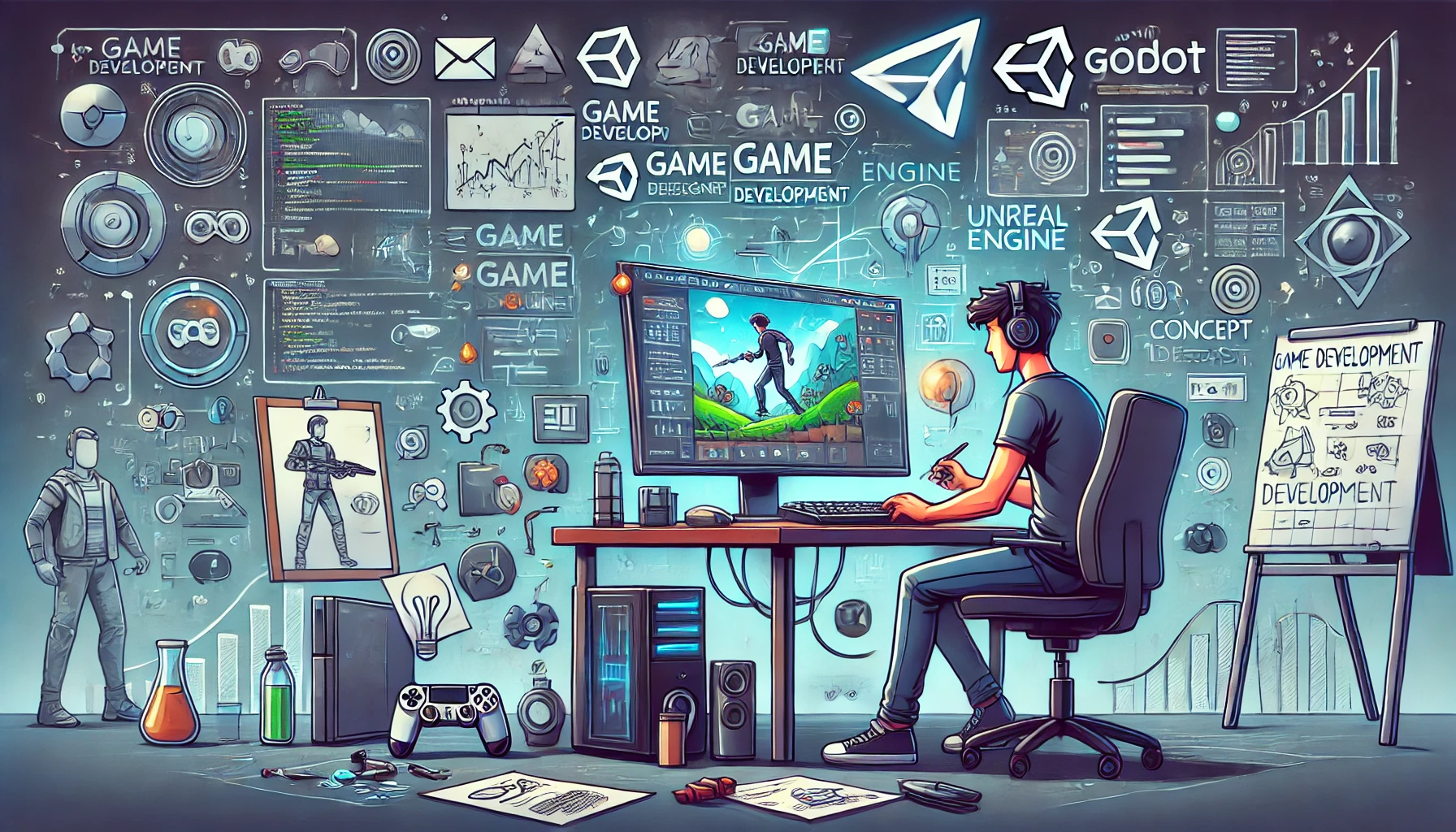Creating your own online game is an exciting venture that can open doors to creativity, innovation, and even a career in game development. Whether you're a beginner or someone with a little bit of experience, this guide will walk you through the essential steps to turn your gaming ideas into reality. Let’s dive into this beginner’s guide for aspiring game developers!
1. Understanding the Basics of Game Development
Before you start developing your online game, it's crucial to understand the core elements of game design. Game development involves multiple aspects, such as:
- Concept Design: Your idea should be unique and engaging. It should attract players and keep them coming back for more.
- Storyline Development: A great storyline adds depth to your game. Even simple online games can benefit from a narrative that hooks the player.
- Graphics and Design: Modern gamers expect visually appealing games, so make sure your game has smooth, high-quality graphics.
- Programming and Coding: The most popular programming languages for game development are JavaScript, Python, and C#. Learning the basics of coding is essential to bring your game to life.
2. Choosing the Right Game Development Platform
There are several game development platforms available for beginners that make it easy to create games without deep programming knowledge. Some of the best game development platforms include:
- Unity: Known for its versatility, Unity supports 2D and 3D game development and is popular among beginners and professionals.
- Unreal Engine: This platform provides high-quality graphics and is widely used in the gaming industry.
- Godot: An open-source platform that is beginner-friendly, Godot is great for creating both 2D and 3D games.
- Construct: A browser-based tool that allows you to create games without any coding, perfect for beginners.
Platforms like Unity and Unreal Engine have a significant share in the market, with Unity being used by over 50% of game developers worldwide.
3. Developing Your First Game: Step-by-Step Process
Creating your first game may seem daunting, but by breaking it down into smaller steps, the process becomes more manageable:
- Game Concept: Decide on the genre and concept of your game. Is it going to be a puzzle, adventure, strategy, or action game?
- Game Design Document (GDD): Create a detailed document outlining your game mechanics, storyline, characters, and objectives.
- Prototype: Build a basic version of your game to test the core mechanics and gameplay.
- Design and Graphics: Incorporate design elements, characters, backgrounds, and other visual elements that make the game attractive.
- Coding and Testing: Write the code for your game and test it rigorously to eliminate bugs and glitches.
- Release and Market: Once the game is complete, launch it on different platforms like Google Play, Apple App Store, or even on your website, like iShowGames.com.
For inspiration, you might check out games like "Bubble Shooter" on iShowGames.com which provides a simple yet addictive gameplay experience.
4. Monetization: How to Make Money from Your Game
Monetizing your game is an essential aspect of game development if you're looking to turn your passion into profit. Some common ways to earn from your online game include:
- In-App Purchases: Allow players to buy virtual goods or power-ups within the game.
- Ads Integration: Integrate ads using services like Google AdMob to earn revenue each time an ad is displayed to your players.
- Freemium Model: Offer your game for free but charge for additional features or levels.
- Premium Sales: Sell your game directly for a one-time fee on platforms like Steam or your own site.
According to recent data, the global gaming market is expected to reach $268.8 billion by 2025, with mobile games dominating more than 50% of this revenue.
5. Promoting Your Game
Promotion is key to your game’s success. Even if you create the best game, it won’t succeed without proper marketing. Some effective promotional strategies include:
- Social Media Marketing: Leverage platforms like Facebook, Twitter, Instagram, and YouTube to share gameplay videos and teasers.
- Gaming Communities: Participate in online gaming forums and communities to create a buzz around your game.
- Influencer Collaboration: Partner with gaming influencers to showcase your game to a larger audience.
- Website Integration: Use your website like iShowGames.com to host your game, where it can gain traction among your existing audience.
6. Trends in Game Development for 2024
The game development industry is evolving rapidly, with new trends emerging that every aspiring game developer should be aware of:
- AI-Powered Game Design: Artificial Intelligence is playing a significant role in creating adaptive and smarter game environments.
- Virtual Reality (VR) and Augmented Reality (AR): With the rise of devices like Oculus Rift and Meta Quest, VR and AR games are gaining immense popularity.
- Cross-Platform Play: Players expect seamless gaming experiences across devices, from mobile to consoles and PCs.
By staying up-to-date with these trends, you can create a game that is not only modern but also stands out in the competitive market.
Conclusion
Creating your own online game is a journey filled with creativity, challenges, and immense satisfaction. By following the right steps, choosing the right platform, and keeping up with the latest trends, you can bring your game ideas to life. Whether you're developing a casual game like "Bubble Shooter" or a more complex adventure game, your vision and dedication are what will make it shine.
Don't forget to explore the collection of free online games on iShowGames.com to gain insights and inspiration for your own game development journey. Happy game-making!

